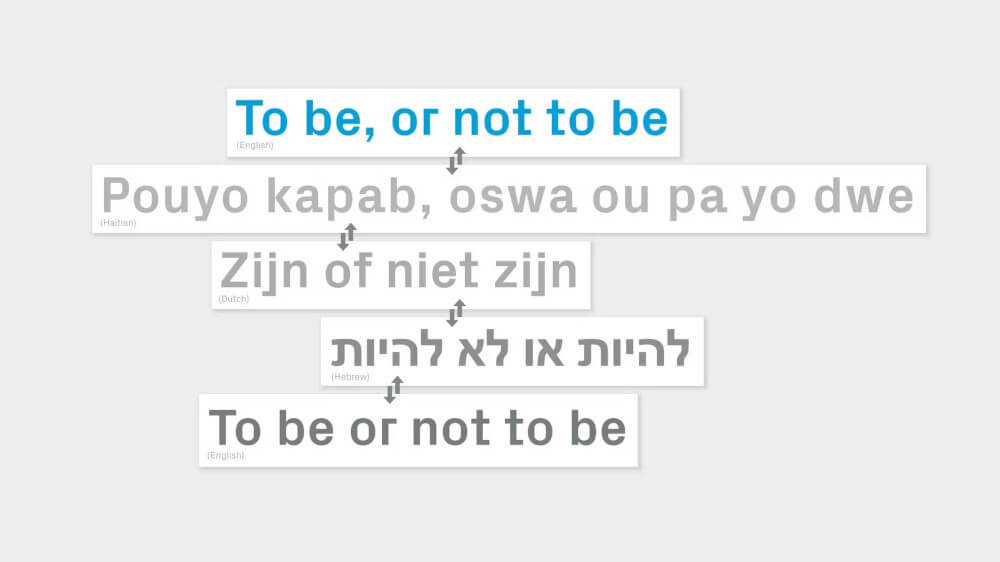
video tutorials for social media
How to Become a Freelance Translator: The Ultimate Guide
The translation is an art that speaks directly to the heart of different cultures and languages—continued for ages. The more significant part of existing knowledge, cultural and socio-political history, exists due to translations. Translation tools are newer to the market, but human translators have been custodians of transporting knowledge worldwide.
Even today, when translation generation tools are swamping the market, becoming professional freelance translators holds a greater responsibility and is no simple task, even if you can memorize an entire dictionary.
Besides having equipped with an incredible suite of linguistic command and skills, there’s an underlying necessity to know how business works.
If you aim to become a go pro and want to become a dedicated freelance translator, you’ll have to make a lot of commitment and have full command in several areas, on top of your linguistic skills.
Luckily, the digital world is full of helpful information to reduce your learning curve. The read of this blog will help you curate the best tips and suggestions on how to become a translator.

How to become a translator—a complete guide.
The translation is the process of converting a text from the original language to the target language. A significant concentration and expertise make the translated text flow smoothly as the original text. A freelance translators take up their work. Their main job is to author a piece of writing.
First and foremost step, having a solid command of at least two languages is essential. Ideally, it would be best if you were bilingual or multilingual, fluent in both the source and target languages. Having a degree in translation, linguistics, or a related field is also helpful.
If you have the requisite language skills and educational background, the next step is to gain some experience. There are many ways to do this, including internships, volunteering, and working as freelance translators. These experiences will give you the opportunity to hone your skills and build up your portfolio and expand your professional network.
Once you have some experience under your belt, the next step is to start seeking out paid work. This can be done by contacting translation agencies or companies directly and inquiring about job openings. Alternatively, you can search for online job postings.
What are the different types of translation jobs?
Many different types of translation jobs are available, from translating documents for businesses to working on literary translations. Here are some of the most common types of translation jobs:
Business translation: This involves translating documents such as contracts, marketing materials, and financial reports. It’s important to convey complex information in another language accurately.
Legal translation: Legal documents can be very complex, so they must be translated accurately. This type of translation often requires specialist knowledge of legal terminology.
Literary translation: Literary translations are often more creative than other types of translation. As well as being able to convey the original text’s meaning, literary freelance translators need to be able to capture the style and tone of the work.
With hard work and dedication, it is possible to build a successful career as a freelance translator. By following the steps outlined in this guide, you will know the complete guide on taking the right footsteps of acquiring a translation career.
Step 1: Understand the profession of freelance translation
Most people don’t completely understand what freelance translators do and, more specifically, how to become a translator. People think translation is all about knowing one word and translating another language. Well, a translation job is something more significant than that. The translator’s job is not just to translate but to thoroughly understand a language’s cultural and socio-political history. So, the translated piece goes well with the flow of the targeted language instead of a bunch of disconnected words and phrases. They believe you take one word and say it in another language.
In short, the freelance translator’s job is to adopt the art of translation fully.
Step 2: Carefully decide on the niche language to specialize
The freelance translator’s profession is not something to begin mindlessly. After being done with in-depth research on the scope, methods to learn skills, and knowing well about your chosen niche. Just jumping into the freelance translator’s profession blindly is not a good idea.
Step 3: Check the level of your skills before deciding on the profession of freelance translators
Once you know the specialized area, it is time to comprehend your ability to adopt a translation job fully. You can check with the third-party or skill analysis center to know the actual level of your expertise. Afterward, you can decide to improve your knowledge and skill set.
Step 4: Check with a third party of freelance translators to confirm your expertise level.
After you have practiced your knowledge, you can check your knowledge with third-party experts to learn more tips and hacks on learning translation skills. Intermingling with your professional community is always advised, no matter what field you belong to. The more you get in touch with your community, the more you know about the news and trends that are helpful to gain advantages in your professional life.
Step 5: In-depth understanding of the freelance translation profession holds
The sign of a true professional is that they know the toolset and skillset of their profession entirely. Combining skills and tools is essential to survive in the fast-paced modern world. The global market is flooded with translation generation tools that can help freelance translators, making their job easier. For translators working with video content, SubtitleBee offers an AI-powered platform to add accurate subtitles in different languages, making videos accessible to diverse audiences.
Step 6: Learn how the freelance translation business world works
Planning is the heart of everything. To make your profession successful, continuous planning is needed.
Always plan on where your business is going and decide on a budget so that you can scale your translation business to earn more. It’s a good idea to start out doing your calculations. It will also require you to learn some fundamental accounting principles. This practice is eye-opening once you have known to work closely with your numbers.
Step 7: Market yourself and find work
With everything being online, you cannot survive alone. If you want to stay, you have no choice but to make your work known.
It is essential to send your worked-so-hard work to the digital world to market your knowledge and skill set. The good thing about everything being online is that your message gets heard; the bad thing is that it can sometimes be an overwhelming experience.
Marketing your work digitally is essential in today’s online-driven world. To stand out, you should offer comprehensive services that appeal to a global audience. Using tools like SubtitleBee can help freelance translators add multilingual subtitles to video content, making it easier for clients to reach new markets and enhancing your professional offerings.
Step 8: Never stop improving
There is always room for improvement. In the fast-paced world, you can never think of sitting down with satisfaction without continuously upgrading yourself. The best way is to collaborate well with the community of freelance translators. You can do in-depth research to enhance your knowledge of the art of translation and communication.
Step 9: Continuously improve your linguistics dexterity
As a freelance translator, your linguistics skills are an essential asset like gold. Learn to strengthen them from the beginning and continue to work on them daily. If you don’t work on them daily, some people do, and they would likely have more chances of over-competing with you. For instance, more clients will prefer trusting their knowledge and skills than you.
How to find translator jobs online?
Millions of people are doing business online. Since its an obligation to make their products accessible to the maximum people. Some companies have to market their products in different geographical zones with different native languages. They might require freelance translators to sell their products and business offshore.
As a savvy freelance translator, there are several opportunities for you to excel at your skill and earn money. Finding high-paying work may be difficult if you are a struggling language specialist. In the start, there are quite bumps, but the process is more straightforward.

How to find your targeted translator jobs online?
Before throwing your application at several companies, you must know what business niche you want to work with, such as medicine, education, law, e-commerce, etc. Make sure you find the selected business industry easy and you right fit their working criteria.
Here are five steps you need to take to secure translator jobs online
1. Cover Your Basis
It’s one of the initial steps to ensure your skills and knowledge are well met with the chosen work. With higher education available online, getting all the desired skillset through online courses and getting certified has become more accessible. Your location is not a limitation now—thanks to the technology. Some people choose industries that pay higher, such as medical organizations, law firms, and Saas-based companies.
2. Design A Savvy Resume
A resume still stands on its higher grounds to imprint a good effect on the employer. A well-designed, detailed, and professionally illustrated resume created by resume builder enhance your chances of being selected. Put your education, experience, and professional inclinations in a way that influences the employer. Remember the days when people used to make multiple resumes in the back days? People with years and years of experience still have multiple pages of resumes. In any case, never forget to mention and highlight important education and experiences at the top or at the place with maximum attention. For freelance translators, they have to update their resumes or LinkedIn profiles once they complete their short or long terms contracts or projects.
3. Find Online Translator Jobs for Starter
It is needless to say that you can use multiple platforms to secure translator jobs online. There are several opportunities available for language specialists:
There are a few different ways to go about finding translator jobs online. The first way is to search for them on job boards. There are many different job boards out there, so you should be able to find a few that list that goes with the title of “freelance translation jobs”.
Apply to freelance translation agencies—If you are looking for a remote freelance translator job, you can apply to global job agencies. Many freelance platforms offer online translator jobs, such as Upwork, Toptal, Fiverr, LinkedIn, and many more. The initial steps are to apply online and complete the evaluation tests. Once you successfully meet their criteria, you can secure the position.
Finally, you can also try contacting companies directly and asking if they have any openings for freelance translators. This may take a bit more effort, but it’s worth it if you’re serious about finding a freelance translator job.
Whichever method you choose, make sure you put in the right effort to secure your dream job.
4. Acquire More Experience and Upgrade
Acquiring a dream job is not a one night task; it takes time to build caliber and potential to compete in the global market. Hands-on experience that is more than “book smarts” will help you secure your dream translation job.

Translation services vs. freelance translation
Since the pandemic, freelancing has been growing at double speed. Hybrid or remote work culture is becoming a new reality. All work cultures are suitable as per job requirements, but regardless, all work cultures have pros and cons.
Translation services are usually provided by companies that specialize in language services. These companies typically have a team of in-house translators and a network of freelance translators they work with regularly. When you work with a translation service, you can expect more consistent quality and turnaround times than you would get with a freelance translator. However, translation services can be more expensive than working with a freelancer.
On the other hand, freelance translators are independent contractors who work on a per-project basis. You may have to source and manage your projects, but you’ll also have more control over your workflow and schedule. And since you’re working directly with clients, you may be able to negotiate lower rates.
There are pros and cons to both options. Here’s a quick rundown of what you can expect from each:
Translation agencies:
- You’ll have a regular income and set hours.
- You’ll be able to work on a variety of projects.
- You may be able to specialize in a certain area or language pair.
- You may receive training and support from your employer.
Freelance translation:
- You’ll be your own boss and can set your own hours.
- You can choose which projects you want to work on.
- You may be able to work from home.
- You may have more control over your rates and earnings.
- Have freedom to travel and spend time with the dear ones
Frequently Asked Questions
How do I start freelancing as a translator?
To start freelancing as a translator, you’ll need to focus on a few key steps:
- Master Language Skills
- Gain Experience
- Specialize in a Niche
- Market Yourself
- Use Tools & Technology
- Never Stop Improving
By following these steps, you’ll set yourself up for success as a freelance translator and can begin finding clients and growing your business.
What types of translation jobs are available?
There are various types of translation jobs available, including business translation (contracts, marketing materials), legal translation (documents with complex legal terminology), and literary translation (books, articles). The type of translation job depends on your niche and expertise.
What tools can help me as a freelance translator?
Tools like SubtitleBee are incredibly useful for freelance translators. SubtitleBee, for example, helps you add multilingual subtitles to video content, making your work more accessible to global audiences. Other tools like translation memory software and glossaries can also improve your efficiency and accuracy.
How can I ensure accuracy in my translations?
To ensure accuracy, you should thoroughly understand both the source and target languages, including their cultural and contextual nuances. Proofreading and using translation memory tools can also help you maintain consistency and avoid errors.
It’s a wrap up
The debate between choosing between acquiring a skillset and getting help from tools has long died down. Because both things are equally necessary in today’s time, even freelance translators must translate their work through tools to avoid mistakes and make their job easier. Sometimes they have difficulty understanding jargon or poorly recorded material—they need translation generation tools to get the job done accurately.
In today’s world, translators need both skill-sets and advanced tools to excel. Using translation generation tools can help you stay competitive and efficient. For instance, SubtitleBee is a powerful tool for adding accurate subtitles to video content, making translation services more comprehensive and accessible.
Technology makes the job easier for people and earns money easily in a so-hard-growing world. If we think from a bigger perspective, we need tech help to make our jobs easier without feeling threatened.
Add and translate your subtitles to more than 100 languages with high accuracy












